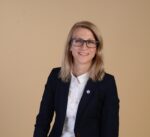19th February 2024 Skopje, North Macedonia
There are no borders in knowledge, those are just contours of new horizons and possibilities
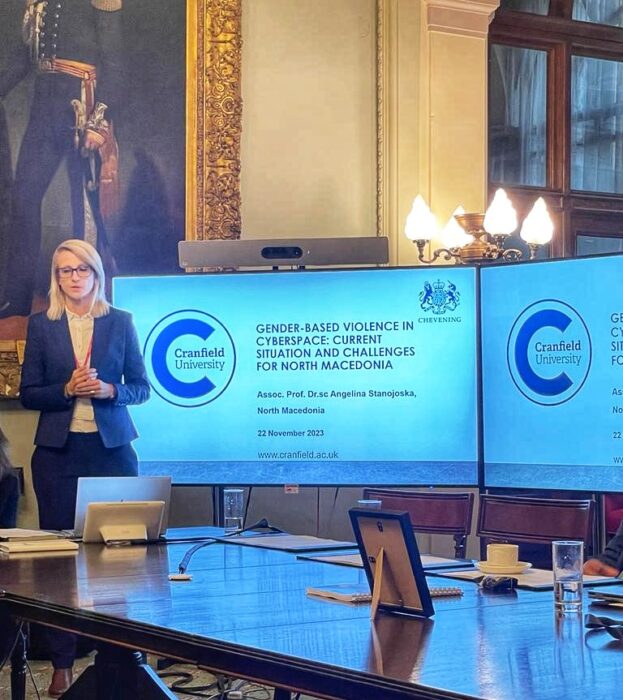
Being part of the educational process in each country requires a person to have a set of different skills among which being a leader and influencing community changes through policy-making and future generations. Working as a professor means being a
researcher at the same time, and those two areas are the ones that complement one another and form an academic.
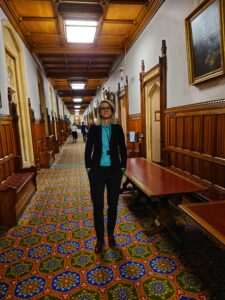
My research has always been directed toward addressing pending social issues, such as the rights of the incarcerated population (women), gender-based violence, sexual harassment, human trafficking, and the smuggling of migrants.
In this form I try to point out the pending problems, and create solutions by policy change, enactment, or amending existing law, and, to inform the public of the existing criminal phenomena.
To make the changes from my research papers, I started to be part of the education and training process of field practitioners. In this way, our academic work can have a more significant impact on society.
As an academic, my goal in my professional development is to gain different research perspectives and skills that are implemented in varied social contexts.
Being part of many professional enhancement programs, seminars, scientific conferences, and other professional events has shaped my work helped me to grow as a researcher and professor and widened my horizons about less researched social phenomena.
I knew about the Chevening programme but didn’t know anything about the Fellowships segment. To learn more, I checked the Chevening website, learned about the Western Balkans Cybersecurity Fellowship, noted the timeline, and later I applied, and I was selected as one of the 12 Fellows in the 2023 Cohort. Well, this kind of programme, has a lot of highlights and benefits, but I would divide them into two groups.
The first one is that you get to meet eleven other people from Western Balkans who become your close collaborators and you have them as your colleagues during the Fellowship, but also later, and you can start your own projects in the WB area.
Also, we get to meet professionals, academics, and people from business, media, etc., who I wouldn’t imagine having the possibility to meet and to listen to their lectures, and even have a chat afterward.
The other one is the originality of the Programme, making it applicable to each one’s knowledge about cyber. What does this mean?
It means that you don’t need to be a tech person to apply for it because it is designed for everyone to be able to learn more about cyber, and its different aspects.
For me, it was such an inspirational journey, because it took me to parts of my professional self, I didn’t even know existed, helped me to find new research areas, and showed me I could do a lot around gender and cyber.
And of course, as a Fellows we get the opportunity to spend time in the UK, learn firsthand for the culture, everyday life, feel the British spirit, visit places, cities, museums, events, etc.
Тhe UK has some of the best universities worldwide, that have implemented one of the best educational and research practices globally.
During the Programme we were based in Swindon and went to Cranfield University – Shrivenham Campus every day for the lectures. Maybe Swindon is not the hidden gem of the UK, but it well situated and connected to London, Oxford, Cardiff, Bristol, Bath, and other UK cities.
The ten weeks provide lectures from academics and practitioners about cyber threats, cyber-crime and internet law, economics of online business, cyber security, human rights and cyber, gender and cyber, and other relevant issues concerning Western Balkans.
Beside the lectures, the fellowship offers possibilities for field trips to government institutions, and private companies which are one of the best in the cyber world. Also, we had the opportunity to visit the Cyber and Security EXPO in London in September.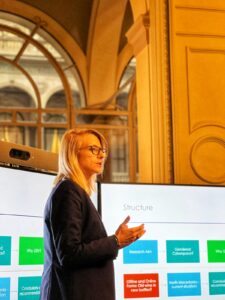
During the Programme we have the task of writing an essay, individual and groups notes, and a final report with a presentation at the final event.
Maybe for academics as me writing is not a problem, but I would say that these tasks are of a great importance, as by fulfilling them, we focus much more on certain problem from the cyber area, and work on possible solutions by researching it.
With the finishing of the Programme our connection as Fellows to Chevening doesn’t end as we become Alumni, and as each worldwide known programme, Chevening offers financial opportunities to projects which are developed and implemented by Alumni.
In this way we get the opportunity to practically use the gained knowledge during the Fellowship. I would say that Chevening was the most turbulent, but also the most challenging professional journey that I had and the one that took me to certain parts of self-discovery and to what else I could scientifically do.
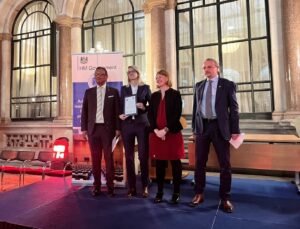
To all the potential candidates out there, apply for the Chevening Western Balkans Cybersecurity Fellowship, you will gain many new future collaborators and friends during it, you will learn a lot of new things, get experience which will help your professional growth.
